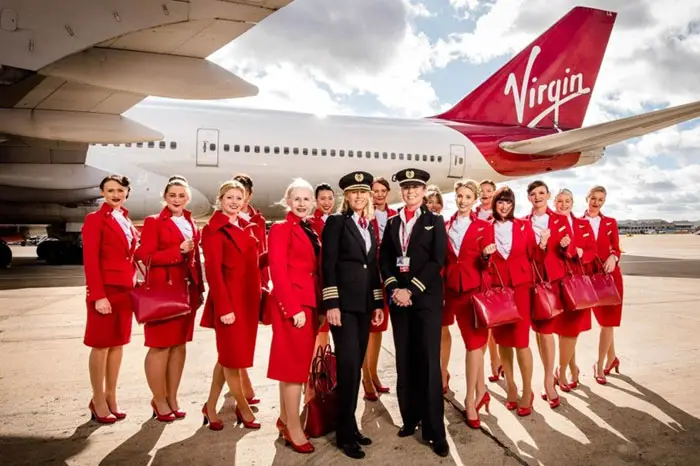
Richard Branson got his start in the business world at the age of 17, dropping out of boarding school to pursue his magazine, Student, in 1968. Two years later he was on to a new challenge when he started Virgin — a mail-order record company named for his lack of experience at such things. After a postal strike the next year put a damper on that enterprise, Branson opened the first Virgin record store. Continued success led to a recording studio and record label that went on to sign several popular British rock bands in the 1970s, including the Sex Pistols, Genesis, and the Rolling Stones.
With his entertainment businesses flourishing in the early 1980s, Branson sought a new adventure and found it in the airline industry, another business he knew very little about. Virgin Atlantic Airways took off in 1984 with one plane and one transatlantic route. Growing steadily, Virgin Atlantic became one of the world’s most profitable airlines in the 1980s. The company added Virgin Holidays (tours) to its travel group in 1985.
Branson collected all his businesses (except the travel operations) into a new company called Virgin Group and took it public in 1986. Despite the company’s continued growth and profits, the market slashed its value after the crash of 1987, and a frustrated Branson bought it all back the following year. Virgin sold its smaller UK record stores in 1988 to focus on the development of its Megastores concept. It also entered the hotel business that year.
Virgin started Britain’s first national commercial rock radio station in 1992. Branson sold the Virgin Music Group (a decision he still regrets) to THORN EMI that year for about $1 billion. He used the proceeds to build Virgin Atlantic. By the early 1990s the airline had added to its fleet and had new routes, including flights to Asia. It also took on British Airways and won a libel suit in 1993.
The company debuted Virgin Cola in 1994 and bought 25% of the Our Price record store chain with WH Smith (it purchased the rest in 1998). Virgin acquired MGM Cinemas (the UK’s largest theater operator) and introduced its financial services business in 1995. Meanwhile it added dozens of new Megastores around the world in the mid-1990s. Virgin got back into the recording business in 1996 when it launched the V2 record label. It also bought low-fare Euro Belgian Airlines (renamed Virgin Express).
Virgin looked to keep itself on the right track in 1997 when it got into the rail business. Realizing that the right track might be the Internet, Branson has pushed the group towards the age of e-commerce and online services with Virgin.com. Mobile phone sales (at its existing retail locations) entered the company’s cornucopia in 1999. In late 1999 Virgin agreed to sell its cinema chain to Vivendi (now Vivendi Universal), raising funds for other online and retail ventures. It launched a major Australian airline (Virgin Blue) in 2000.
That year Branson’s bid to wrest the operation of UK’s national lottery from current contract holder Camelot Group came up short. The National Lottery Commission extended Camelot’s contract for seven years. Later in 2000 the company sold 49% of Virgin Atlantic to Singapore Airlines.
In 2001 Virgin agreed to sell Virgin Sun (package holidays) to rival travel firm First Choice Holidays. Also that year the company sold its 16 French Megastores, as well as some international rights to the Virgin brand, to France’s Lagardère.
Virgin Mobile in 2002 began offering prepaid wireless service in the US in conjunction with Sprint PCS. © 2006 Virgin


